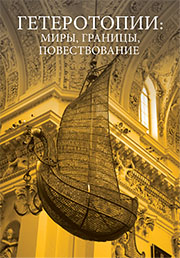Гетеротопия «детства не здесь». К лингвистической характеристике локального сообщества жителей польско-белорусско-литовского языкового пограничья в конце XIX в. (на материале мемуаров В. Л. Скорвида)
Heterotopia of a “childhood not here”. On the linguistic characterization of the local community of the inhabitants of Polish-Belarusian-Lithuanian border area at the end of the XIX century (on the basis of the memoirs of Witold Skorwid)
Author(s): Sergey SkorvidSubject(s): Human Geography, Sociolinguistics, Russian Literature, Western Slavic Languages, Eastern Slavic Languages, Baltic Languages, 19th Century, Inter-Ethnic Relations
Published by: Vilniaus Universiteto Leidykla
Summary/Abstract: The paper analyses the memoirs written in 1953 by the author’s grandfather (born in 1883 in Dinaburg – today Daugavpils, Latvia). The memoirs were written in Moscow, but describe a childhood spent in the Eastern Borderlands of the former Polish territory Kresy. The text, which is written in Russian with many Polish insertions, may be regarded as an attempt to reconstruct a kind of heterotopia of one of the historical, cultural and ethno-linguistic border areas which existed in Central and Eastern Europe a century ago, as well as the heterotopia of a “childhood spent not here”. The basis of this heterotopia was the concept of “remembered home,” which had a symbolic value for the memoirist, and one of the main elements of it was the local form of the Polish language, which had both a “rural” and a “town” variant of usage according to the extent of penetration of Russian and influence of the Russian language on Polish. The first variant, predominantly Polish, was typical of the landed gentry (and apparently also of the Polonised peasants in the surrounding area), whereas the second variant was significantly Russified, and served as a means of communication among the officials and similar groups of the townspeople. The role of Belarusian and Lithuanian language elements in this heterotopia was not as significant, though Lithuania is present in the analysed memoirs as a constant counterpoint. It is represented by the cultural notions connected with Lithuanian history and mythology, on the one hand, as well as some aspects of everyday life on the other (e. g., some names of foods).
Journal: Literatūra
- Issue Year: 57/2015
- Issue No: 5
- Page Range: 221-229
- Page Count: 9
- Language: Russian

